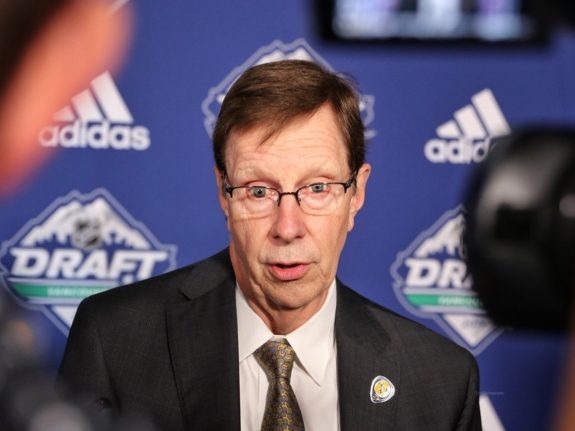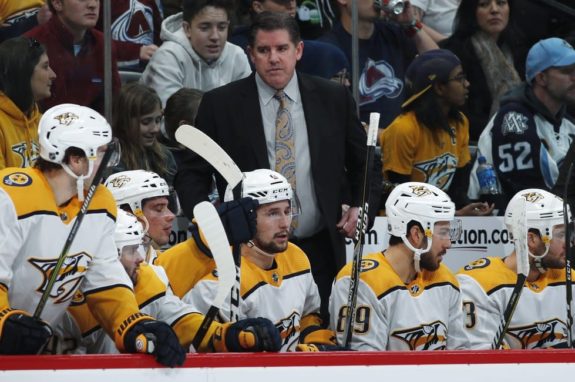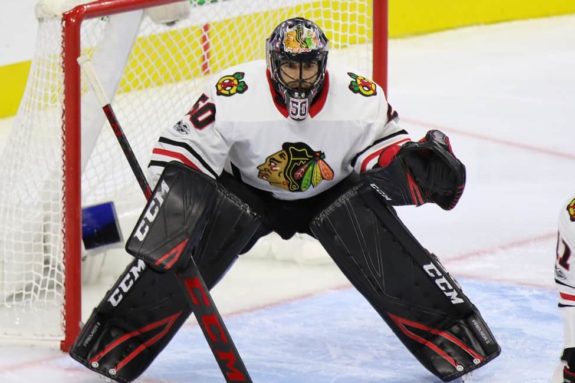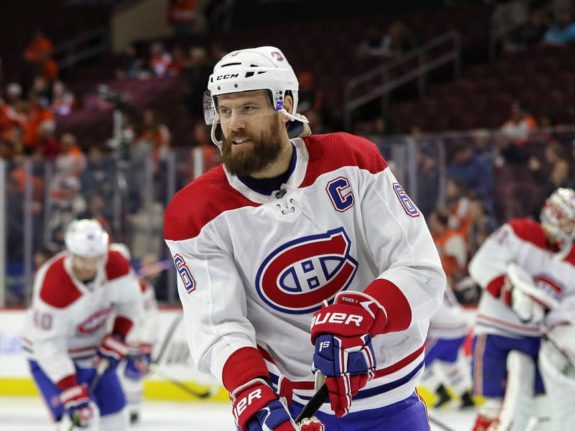The first meaningful hockey action in months provided no shortage of storylines, including some upsets nobody could have seen coming. While they may seem to be complex head-scratchers, all three of the upset results can be explained with a single word.
(6) Predators’ Loss to (11) Coyotes: Complacent
One would have to go way back in the memory bank in order to remember a time in which the Nashville Predators were a bad hockey club. They have made the playoffs in 13 of the last 20 seasons, and more recently, have positioned themselves as perennial Stanley Cup threats. But all of that combines to magnify the fact that they have yet to raise Lord Stanley. This year’s surprising loss to the Arizona Coyotes perfectly encompassed why: they have become complacent.
Related: 5 Greatest Moments in Jets 2.0 History
Unfortunately for Nashville, there is no quick fix to this problem, as it runs all the way from the GM, through the coaches, to the players, every level of which was on display as they fell 3-1 to the ‘Yotes out in Edmonton. While consistency in a club is one thing, the Preds are a classic example of a team that has become too comfortable in what they had, and letting that comfort cloud their judgment of what they currently have.
Naturally, this attitude begins at the top. You don’t have to look much further than Poile admitting that he didn’t think the bottom defense pairings needed shoring up, despite them being composed of the likes of Dan Hamhuis, Yannick Weber, Korbinian Holzer, and Jarred Tinordi.

Poile further exposed himself of potentially having lost touch of today’s NHL when he cited Tinordi’s solid play as the reason for not needing to alter his defensive options. With no disrespect to Tinordi, there are minimal examples of him looking like an adequate NHL player, let alone a solid defenceman, especially seeing as he hasn’t even played a full season’s worth of NHL regular-season games with 81 total.
Poile’s complacency bled into the coaching as he delayed the firing of Peter Laviolette, who had been ineffective since the 2019 playoffs, until midway through the 2019-20 season. Poile then brought in John Hynes, whose system looks nearly identical to Laviolette’s; a system that clearly does not work for these players.

Speaking of the players, there wasn’t much to be seen from the big names on the Predators’ payroll. Boasting the likes of Matt Duchene, Mikael Granlund, Kyle Turris, and Ryan Johansen, there is no reason for Nashville’s offence to finish 17th in goals scored across the league this season, nor for the incredibly inconsistent rate at which they played electric hockey. While they may have the most talented group they’ve ever seen, they’re learning that hard work beats talent when talent doesn’t work hard.
(5) Oilers’ Loss to (12) Blackhawks: Inexperienced
Simply put, the Edmonton Oilers have yet to learn how to win the big games. Unfortunately for them, they were facing a team whose core group has had ample opportunity to master the art of the big win. The Chicago Blackhawks’ three-time Stanley Cup-winning core has remained relatively untouched despite the club’s recent struggles, a decision that paid dividends as they faced a team whose core has but a single playoff series victory.
The battle of experience against a fresh face was most obvious in net, with Corey Crawford being opposite Mikko Koskinen. Prior to the pause, many thought Crawford was on his way out of the NHL. While that may still be true, he’s taking one hell of a victory lap. The Candian was back to his vintage self saving 43 shots in his team’s elimination of Edmonton. When it was 2-2 heading into the final frame of Game 4 of the series, Crawford looked as steady as ever, whereas Koskinen never looked settled in his own crease.

On defense, it’s hard to compete with the experience and poise of veteran Duncan Keith, especially when his opposite is the likes of Ethan Bear or Caleb Jones. The ever-calm Keith made his 28 minutes of ice time in that final game look effortless, even at 37 years of age. Bear and Jones made simple mistakes, that yes, will fix themselves with time, but proved costly in an elimination situation, especially when compared to the coolness of Keith.
All in all, Edmonton’s faults in this series will work themselves out naturally as the group continues to get big-game experience together.
(5) Penguins’ Loss to (12) Canadiens: Outworked
Montreal should have been playing golf by the time the puck dropped on exhibition games in the bubble. Pittsburgh, on the other hand, were expected to make a push for their third Cup in five seasons.
Related: Flyers’ Best & Worst Trades
Instead, Pittsburgh was sent packing from the bubble by a team that simply wanted it more than them. Whether it was the underdog effect, or the Penguins resting on their laurels, Montreal simply looked like the hungrier team.

The importance of Carey Price cannot be overstated, but it is the play that happened in front of him that made the Habs’ victory possible. A goaltender cannot steal you three games, so Claude Julien implemented a siege-warfare strategy, designed to overwhelm the Penguins. The strategy may not have been a surprise, but the fact that it worked against a team that boasts as many big guns as the Pens is shocking.
When Price jokingly said that his team’s best shot of stopping Sidney Crosby and Evgeni Malkin on the power play was asking them to stay in the hotel, people laughed because there was legitimate reason to believe that would be the only way to shut down such a potent combination. But it was the team mentality, swarming defense that essentially rendered the Penguins’ biggest weapon ineffective.
There is no excuse for a team that has Crosby and Malkin to be eliminated by a team whose top two centres are Phillip Danault and Nick Suzuki. But the explanation is as clear as day: the scrappy underdogs wanted the win more than their opponent.